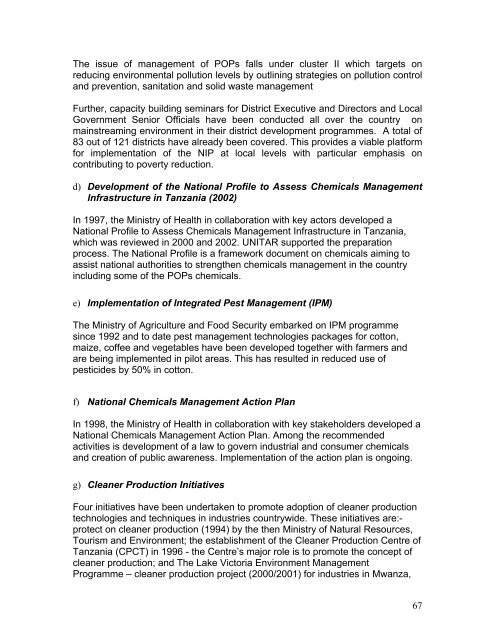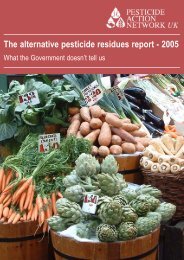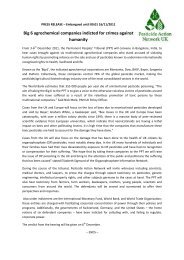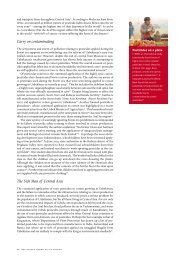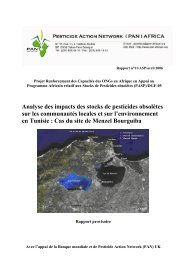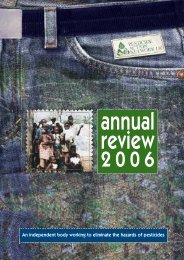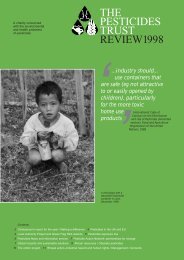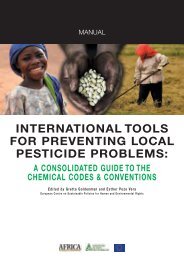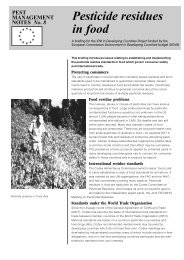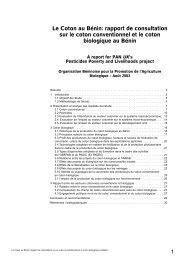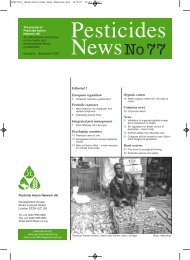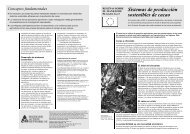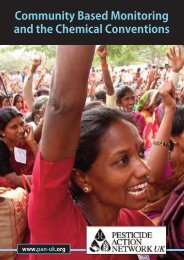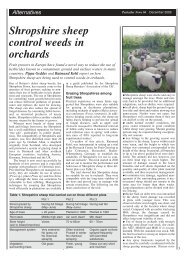Tanzania Multi Stakeholder Map - WebNG
Tanzania Multi Stakeholder Map - WebNG
Tanzania Multi Stakeholder Map - WebNG
You also want an ePaper? Increase the reach of your titles
YUMPU automatically turns print PDFs into web optimized ePapers that Google loves.
The issue of management of POPs falls under cluster II which targets on<br />
reducing environmental pollution levels by outlining strategies on pollution control<br />
and prevention, sanitation and solid waste management<br />
Further, capacity building seminars for District Executive and Directors and Local<br />
Government Senior Officials have been conducted all over the country on<br />
mainstreaming environment in their district development programmes. A total of<br />
83 out of 121 districts have already been covered. This provides a viable platform<br />
for implementation of the NIP at local levels with particular emphasis on<br />
contributing to poverty reduction.<br />
d) Development of the National Profile to Assess Chemicals Management<br />
Infrastructure in <strong>Tanzania</strong> (2002)<br />
In 1997, the Ministry of Health in collaboration with key actors developed a<br />
National Profile to Assess Chemicals Management Infrastructure in <strong>Tanzania</strong>,<br />
which was reviewed in 2000 and 2002. UNITAR supported the preparation<br />
process. The National Profile is a framework document on chemicals aiming to<br />
assist national authorities to strengthen chemicals management in the country<br />
including some of the POPs chemicals.<br />
e) Implementation of Integrated Pest Management (IPM)<br />
The Ministry of Agriculture and Food Security embarked on IPM programme<br />
since 1992 and to date pest management technologies packages for cotton,<br />
maize, coffee and vegetables have been developed together with farmers and<br />
are being implemented in pilot areas. This has resulted in reduced use of<br />
pesticides by 50% in cotton.<br />
f) National Chemicals Management Action Plan<br />
In 1998, the Ministry of Health in collaboration with key stakeholders developed a<br />
National Chemicals Management Action Plan. Among the recommended<br />
activities is development of a law to govern industrial and consumer chemicals<br />
and creation of public awareness. Implementation of the action plan is ongoing.<br />
g) Cleaner Production Initiatives<br />
Four initiatives have been undertaken to promote adoption of cleaner production<br />
technologies and techniques in industries countrywide. These initiatives are:-<br />
protect on cleaner production (1994) by the then Ministry of Natural Resources,<br />
Tourism and Environment; the establishment of the Cleaner Production Centre of<br />
<strong>Tanzania</strong> (CPCT) in 1996 - the Centre’s major role is to promote the concept of<br />
cleaner production; and The Lake Victoria Environment Management<br />
Programme – cleaner production project (2000/2001) for industries in Mwanza,<br />
67


